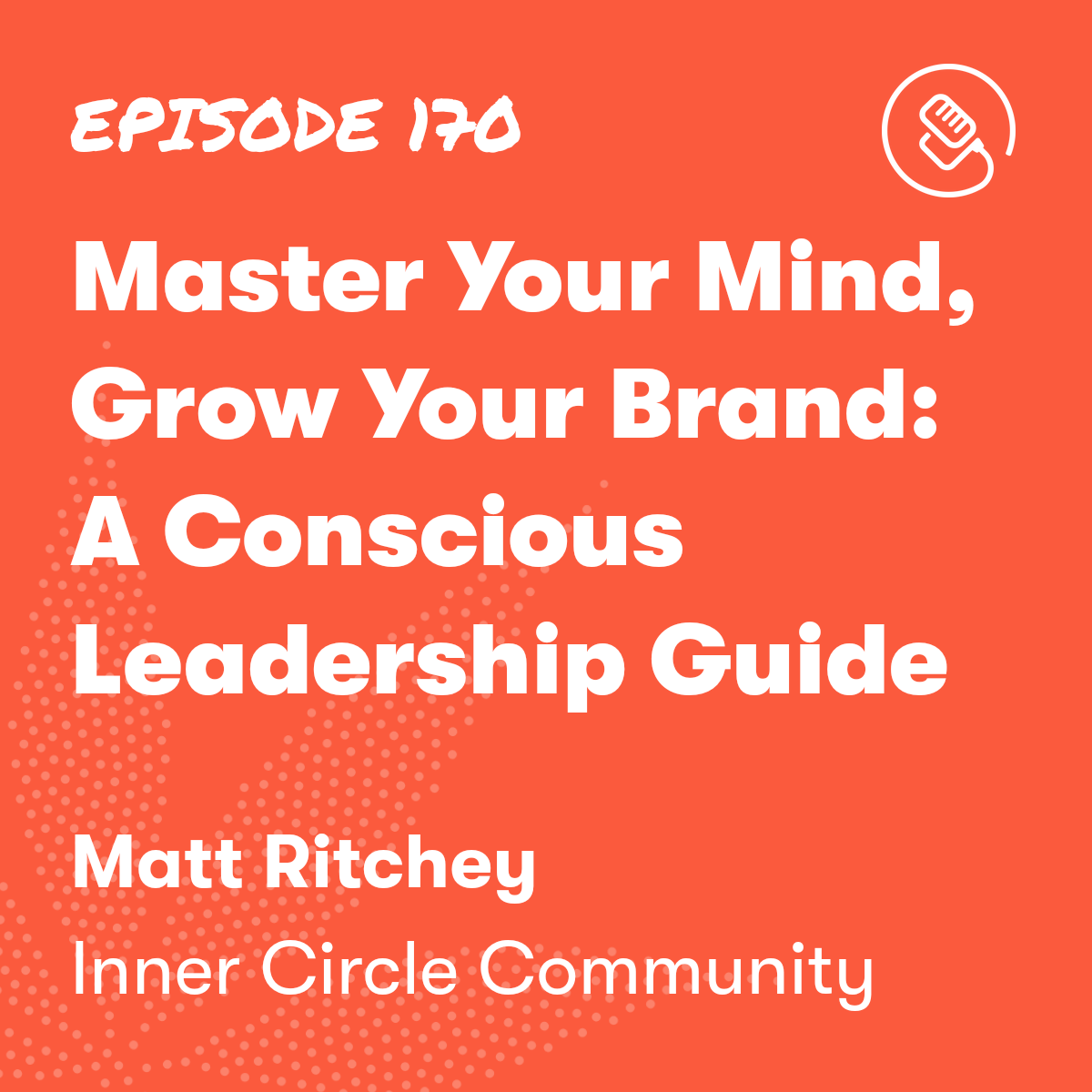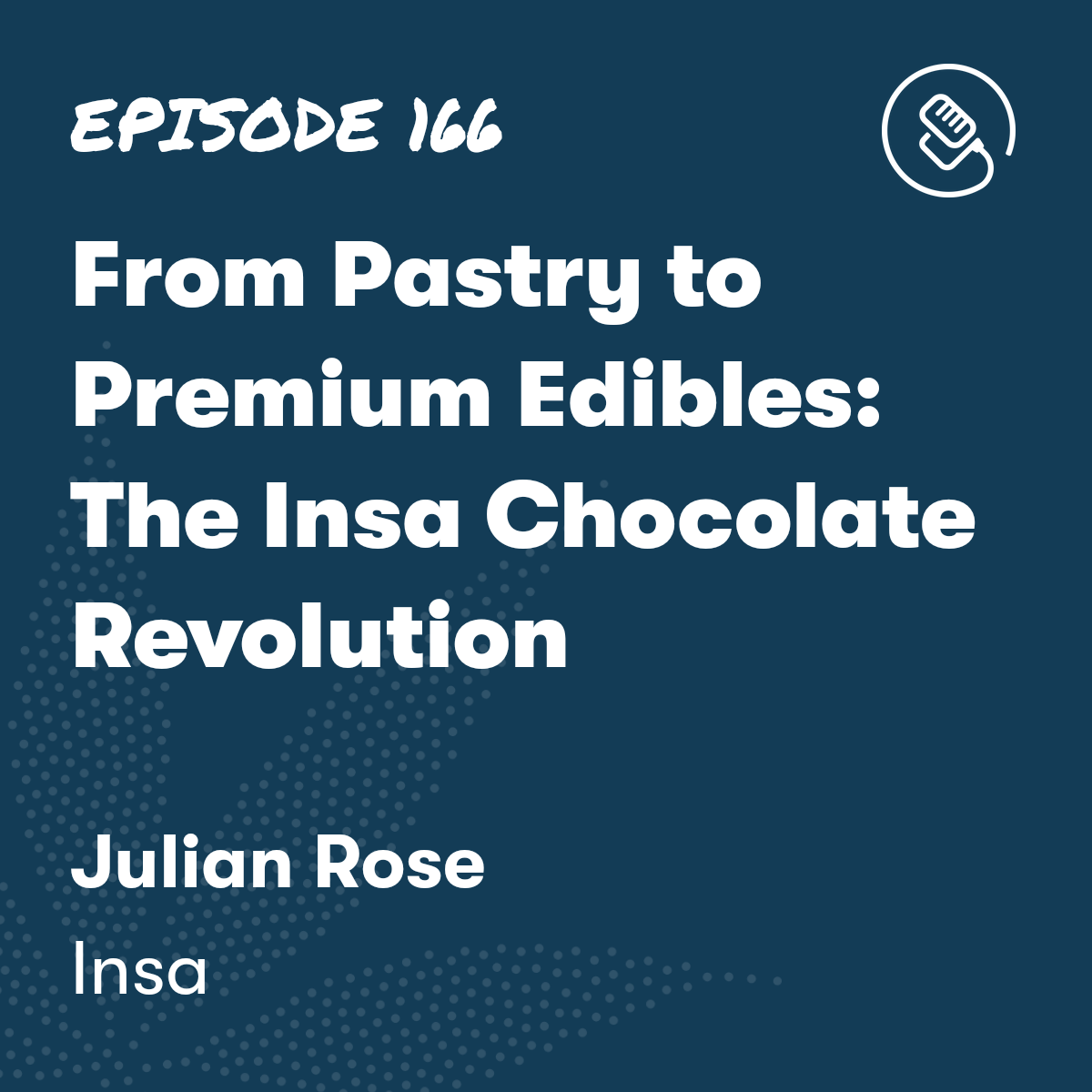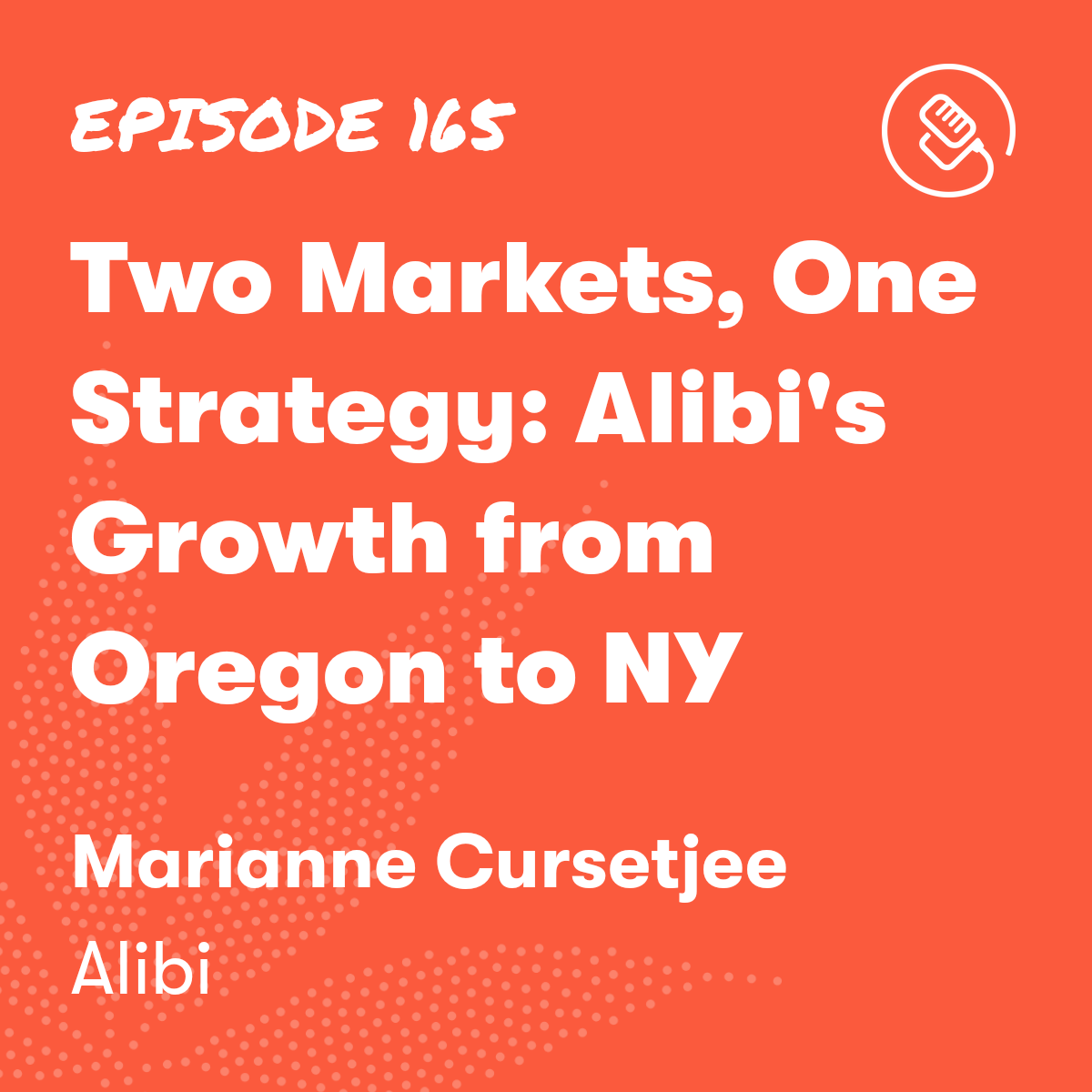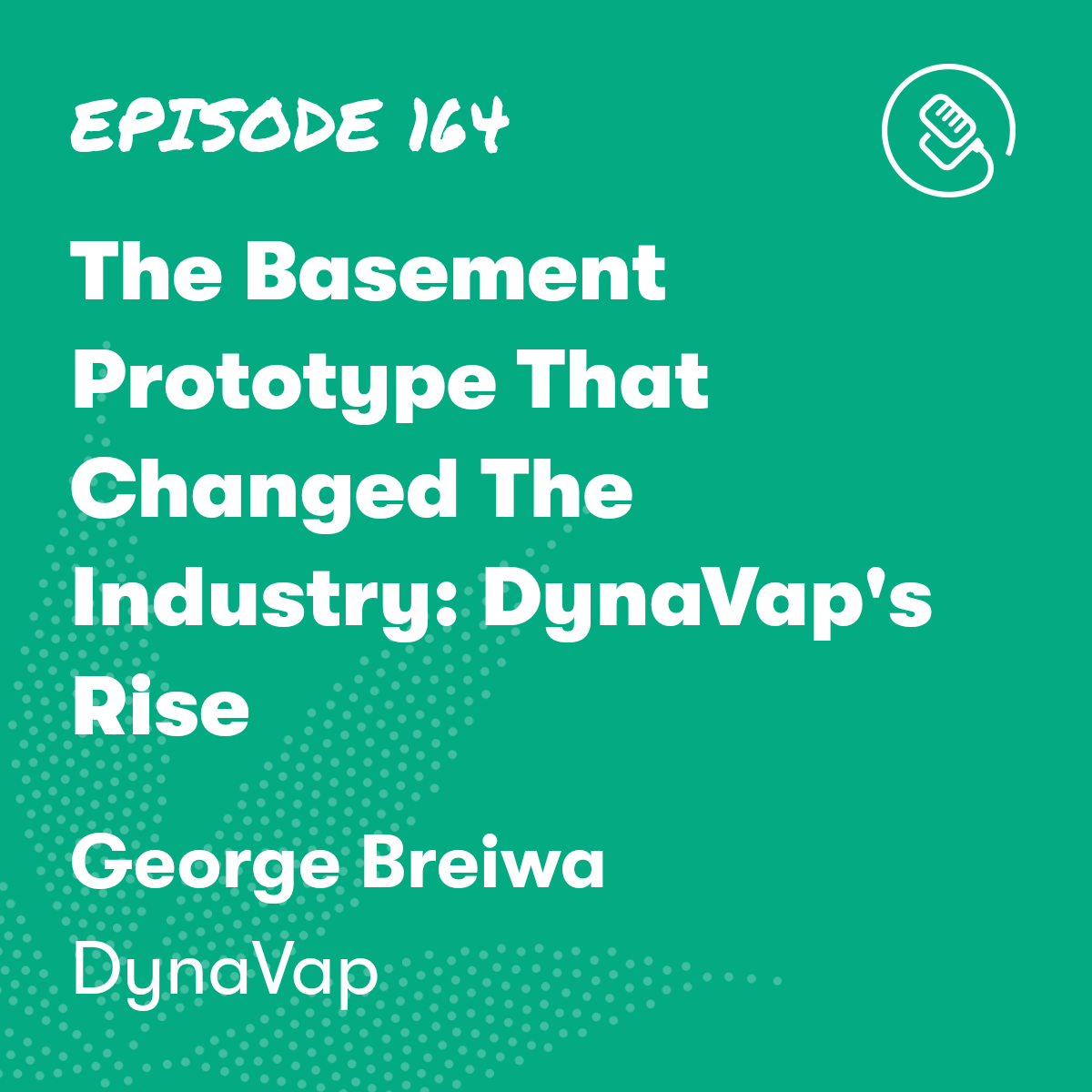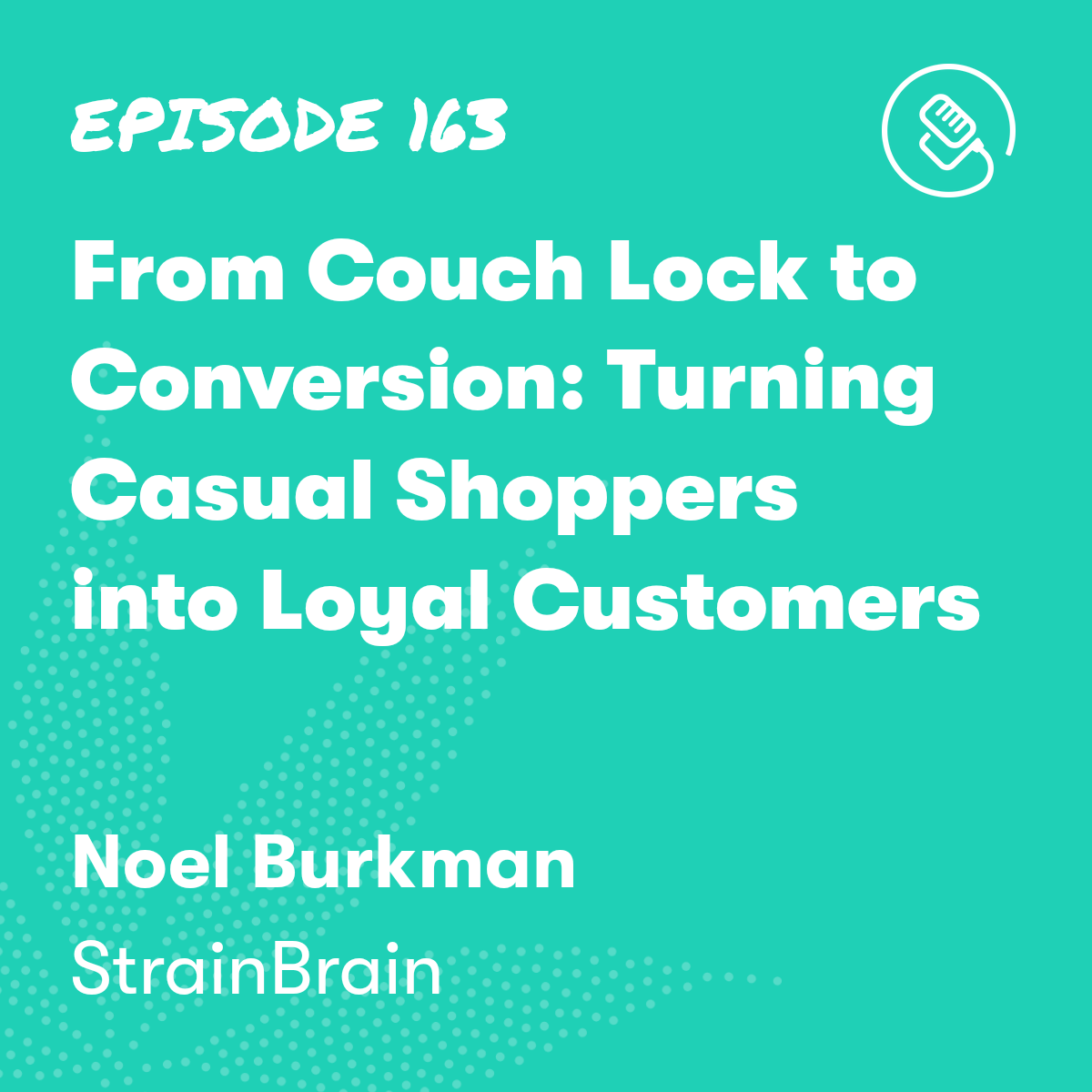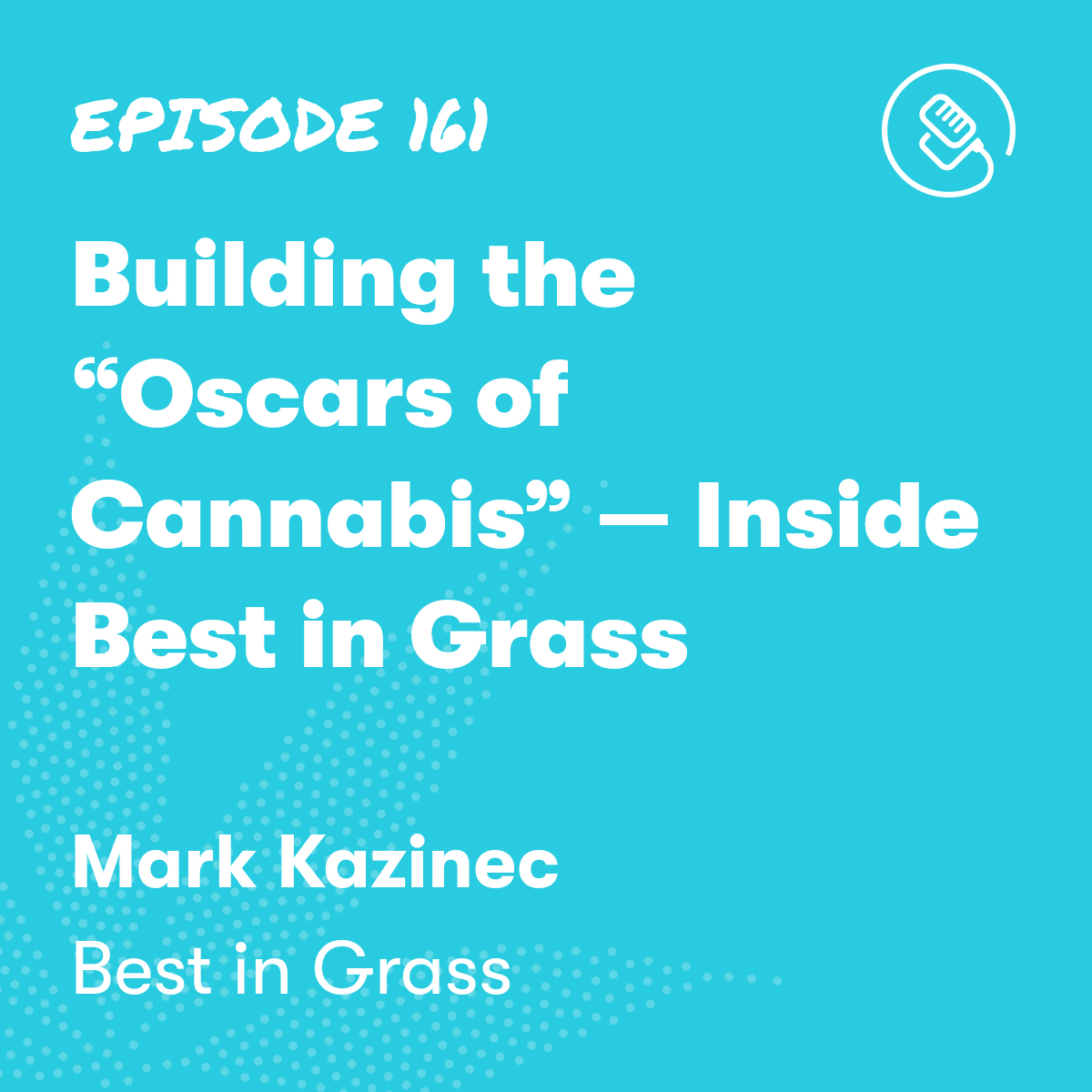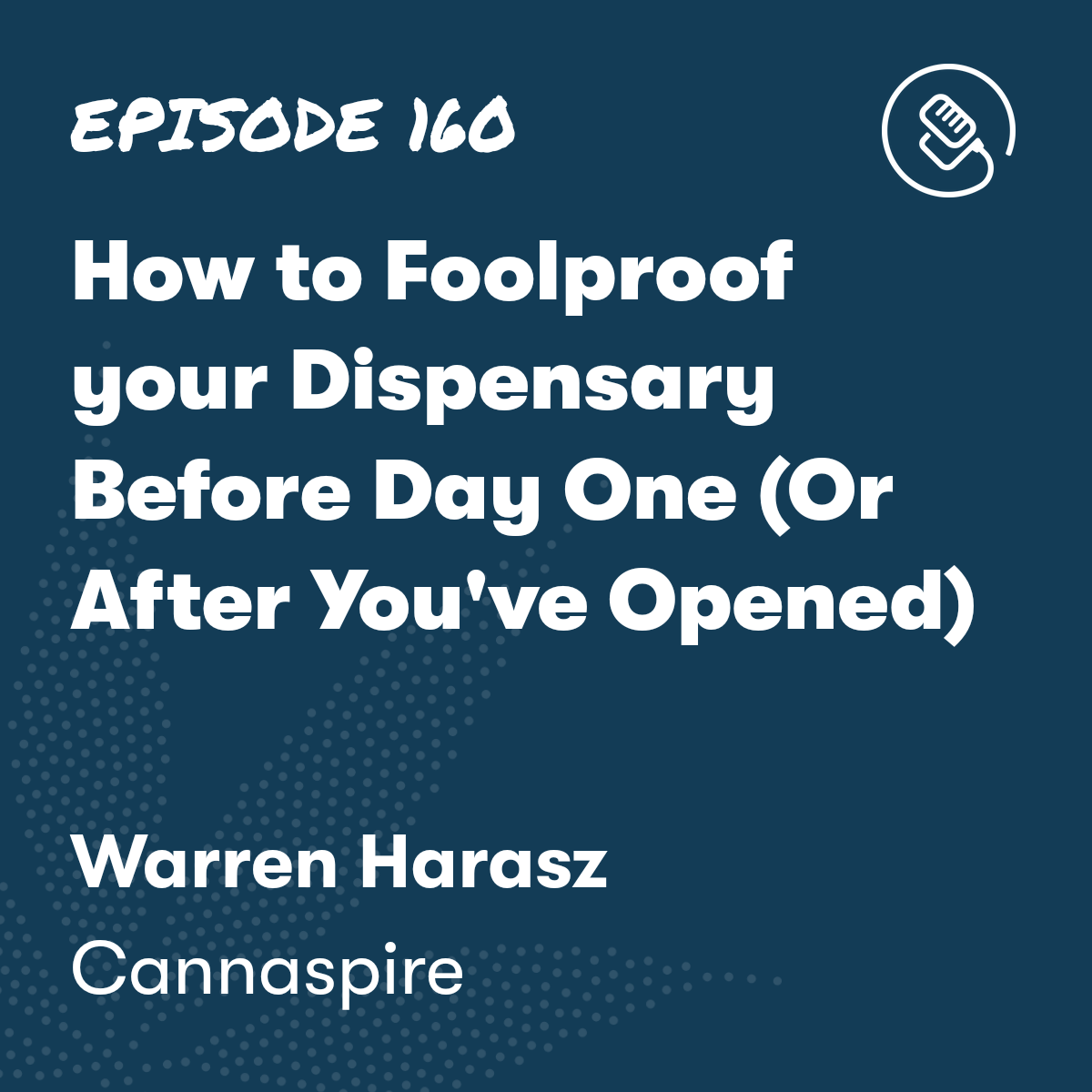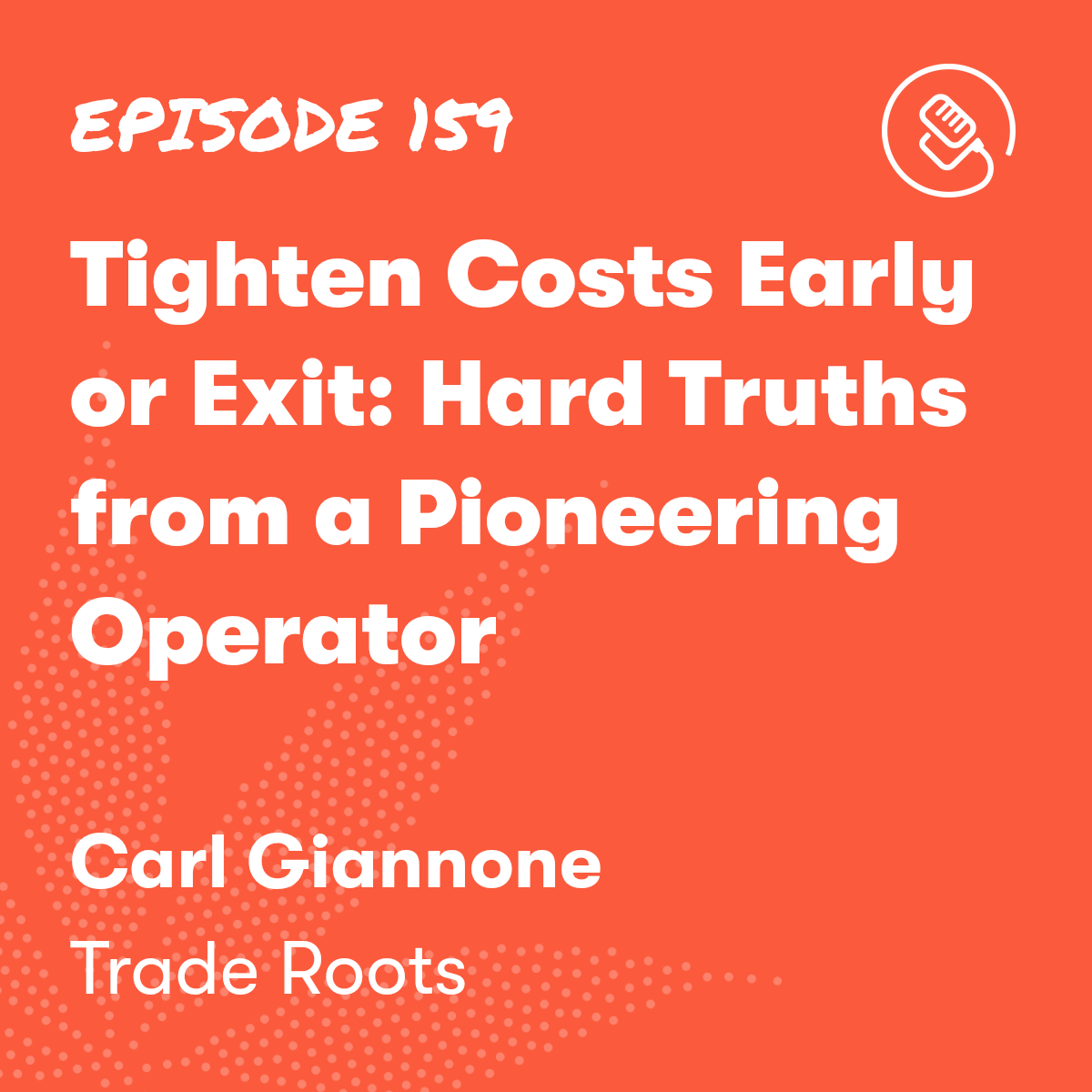

Retail
Beating the Gray Market: Proven Strategies from Cannabis Operators
Episode Description

Thank you! Your submission has been received!
Oops! Something went wrong while submitting the form.
Episode Transcript
Tommy Truong: [00:00:00] Where do you see the industry headed in California this year and the near future?
Tim Morland: the one thing I could say about the industry this year is that you're going to see even more consolidation. You're gonna see a lot of businesses fold.
It's just there's too much cannabis on the market right now here in California. So you're seeing that you're gonna see bigger players arise and unfortunately get more market share as we go.
Intro: Welcome to the Kayak Cast, the podcast for cannabis businesses looking to launch, grow, and scale their operations.
Tommy Truong: Where's California today with hemp?
Tim Morland: Great question. Yeah. Intoxicating hemp products are banned per the emergency regulations by the governor. Governor just introduced probably about two months ago. now you can grow hemp here as long as you're approved in the local level, [00:01:00] and it's treated. It's not treated like cannabis at all.
So it's a completely different set of permits. It's not regulated by the Department of Cannabis Control. It's more related the by the Department of Food and Agriculture here in California. So the, just the general layout is like, yeah, you can, you can get a license to grow it. It can't be above 0.35%. Technically we all know there's shenanigans that happened with that where, a lot of hot product is getting out into the market and being sold through various channels. So it, it's allowed to be grow, to be grown. Essentially there's a federal, the farm bill allows for the cultivation of hemp. Some counties ban it here in California. I know. Mendocino County and maybe some of the other counties in the Emerald Triangle ban it because they do not want hemp products growing next to cannabis products for I believe it's basically the, her, they hermite and destroy the cannabis plant.
They don't wanna mess with that. Not here in Monterey County where we're at. I think they [00:02:00] allow it. I don't see a lot of hemp, but yeah wild policy. Obviously there's definitely some efforts by the trade, by trade groups, both on the cannabis and the hemp side to integrate it into the cannabis market where cannabis licensees can produce and sell it. Combustible hemp products are banned, so smoking, anything smoking not, probably, won't be allowed in California.
Tommy Truong: Okay. So there may be potential to integrate it into. The cannabis industry and then sell beverages.
Tim Morland: Absolutely. Yeah. either, so within the cannabis supply chain the idea is to sell beverages that are, and they're still working on the definition of what's like intoxicating, with this. So let's just say the discussion points have been around 5%, hypothetically anything, any beverage from a hemp product, over 5% would need to be sold in a, in the dispensary chain.
And anything under could be sold in a non dispensary chain to a [00:03:00] consumer. So
Tommy Truong: Wow. So do you foresee cannabis, beverage, or hemp beverages in restaurants where they serve alcohol too?
Tim Morland: a hundred percent,
Tommy Truong: Oh wow. That's amazing.
Tim Morland: if not. let's say a legislative effort is
Tommy Truong: successful
Tim Morland: I.
This year. The legislature just recently came back into session. The bill introduction deadline, I believe here in California is February 21st. So there's going to be a hemp bill of some sort introduced. It's just, it's what's gonna happen. So hypothetically, if that were to pass something like that would probably go into effect the beginning of 2026. And then, the whole process, there might be a regulatory process attached to that, that would push it out another six months. I would venture to guess. Let's just fast forward to January 1st, 2027.
I have a feeling that you'll be able to buy hint beverages in stores, et cetera, non, non [00:04:00] dispensary,
Tommy Truong: Can normal. So not temp, just normal cannabis. Why? Why aren't there any, and maybe it's a demand thing. Low THC beverages.
Tim Morland: That is a good question. I think it's a demand thing. I think, honestly, like most people that shop in the dispensary want like a higher dose. So a lot of the beverages are, like a hundred milligrams
Tommy Truong: Yeah, it's insane. You go to moon, you go to the moon with that.
Tim Morland: If I drink a hundred milligrams, I'm going to the, yeah, I'm going to the moon, I'm probably going to Mars.
And it's stupid because per regulations, they're supposed to dose so on the can they, you got this tall boy can and then. It has a mark for 10 milligrams. The volume, that's 10 milligrams. So that's how you're supposed, that's how they separate it out. But I'm like, come on, you're drinking this delicious drink and I'm gonna stop.
I'm gonna be like, oh, I drink like an eighth of it and I'm gonna stop there because I'm gonna get over my milligram tolerance. [00:05:00] This is not gonna happen. Most people are just gonna, because they taste really good. Why not kill it or
Tommy Truong: So do you think, let's say hemp is the, our entryway into restaurants for low dose beverages, do you think they'll ever be. A time where just normal cannabis has low dose beverages because of the man, and then you could sell it. You could sell that into restaurants as well. What's the difference?
Tim Morland: that is a great question. No talks about that, but why not?
Tommy Truong: Yeah.
Tim Morland: Okay. Hemp and to me, hemp and look it, I'm not a biologist or anything like that, but him and cannabis are essentially the same thing to me.
They're the same plant. So why not? Maybe this is a way, and I, I think there's been kind of discussions about maybe this is a way to just get the Campbell's nose under the tent and then eventually yeah, we do something like that.
Like we sell straight cannabis, low dose cannabis
into, not into a non dispensary channel. Maybe that's it, I'm all for that. [00:06:00] The end of the day, I am like. Maybe I'm more, maybe I'm a libertarian, but I think that like we should be able to sell cannabis anywhere essentially.
That, has the proper age verification. Okay, I can buy cigarettes at a gas station. Those are damaged. Those are just horrible for your health. I can buy alcohol. Same thing as long as I show my id. So what's the, what should be the difference between. Buying a cannabis product and that I consider way safer than alcohol or tobacco.
But it's okay.
Tommy Truong: Yeah, that's, this is what the industry needs.
Tim Morland: Yeah. We need to be integrated into society and be able, our
Tommy Truong: That's. That's what we need. Like why? So that's what the industry needs in terms of a boost. If we can sell low dose, whatever, we'll we will, the ultimate goal is to sell whatever it is anywhere but low dose, like a beer in a supermarket that's cannabis. That is what the industry needs.
Tim Morland: We really do. We [00:07:00] really do. And unfortunately, and I don't know what it's like in Canada, but unfortunately in California, most cities stick dispensaries in like bad parts of town. They're not usually close to freeway exit. It's really inconvenient to actually buy cannabis through their traditional dispensary market.
It just. It's not that dispensary's fault, it's just the regulations and the cities have made it tough to like, have prime locations that allow easy access to consumers or to patients. For instance, I'm from the sa so I said I'm from Sacramento. Technically I'm from a little a town city just directly south to Sacramento.
That does not allow dispensaries.
Tommy Truong: Oh wow.
Tim Morland: I have to drive to, when I want to go to a dispensary, I have to drive 15, 20 minutes away to just, to a dispensary, to my embark dispensary and purchase cannabis. I can't buy it within my, within the city limits of [00:08:00] Elk Grove. And a lot of people in California are in the same situation, so they literally, they have to get in their car and drive, or if they wanted delivery, technically I could have a delivery service come in.
They can't stop that. But no offense to the delivery services, but it just delivery in California, it seems and maybe there's some quicker ones, but it takes like hours to get your cannabis
Tommy Truong: Yeah.
Tim Morland: and then you gotta pay more for it too. It's it is just really, the system has set up a really bad retail experience for cannabis and and frankly, there's some dispensaries out there here in California that you probably don't wanna step into.
It's not a good experience as a consumer, you got low low information, blood tenders. They're just wanting to move people. They don't really sit and listen to why you need cannabis. And may maybe you have a medical issue and have back pain.
What's the best strain for me? Legalization. A lot of our dispensaries were actually open to, like really focused on the medical side. 'cause we [00:09:00] technically had a medical program here in California and I frankly found that a little bit better 'cause you would actually get good information about your cannabis and about where it came from and side effects and all of that.
Tommy Truong: Where do you see the industry headed in California this year and the near future?
Tim Morland: the one thing I could say about the industry this year is that you're going to see even more consolidation. You're gonna see a lot of businesses fold.
It's just there's too much cannabis on the market right now here in California. So you're seeing that you're gonna see bigger players arise and unfortunately get more market share as we go.
So
Tommy Truong: It's.
Tim Morland: what's gonna happen. And then possibly you may see a tax increase as well on cannabis products based on, i'm gonna try to be nice here. You know what? I'm not gonna be nice. Frankly, there was this really horrible piece of legislation passed two years ago. It's AB 1 95. It was [00:10:00] a, what's called a budget trailer bill here in California. Essentially it's, we had the system before then where the distributors collected the excise tax from the retailers, and so the distributors. Were basically pushed back against sis because they were, one, we're not getting paid for invoices, which included the excise tax. So essentially they were like. On the hook for this excise tax. And then for the actual product, they sold the retailers. So what this did, and at the same time we had a cultivation tax. So what this piece of legislation did was it moved the excise tax collection to retail. Whenever you pay, a consumer comes in, pays for their cannabis, that excise T is tacked on to all the other. Local taxes and whatever, that's another issue. taxes, et cetera. So essentially collection has moved to the retail level, and then they got rid of the cultivation, tax. However, they put this little provision in there. It's like a trigger. So [00:11:00] if the excise tax collection from retail does not match what we used to, what we would've collected from the cultivation tax, there's a trigger in there that allows the state to adjust the taxation agency at the state to adjust the excise tax up to 19%. Now, the California market since 2021, since the heyday of Covid. Has gone, has plummeted.
Tommy Truong: Yeah.
Tim Morland: can see it has just completely plummeted. So now the state is not collecting that revenue because the industry has plummeted and over production, et cetera. now tax revenue has gone significantly down. And so now we've hit that trigger. Where the excise tax can, essentially, they're gonna take a vote. The Taxation agency, the California Department of Tax and Fee Administration will take a vote, I believe it's in June or July. And essentially they will vote, and they almost have to, because it's law, the trigger, and they're gonna probably put [00:12:00] in a 19%, excise tax, and that'll go up for 4% from the 15% it is currently. There is some efforts to try and stall this but frankly, it's a tough sell because the state's broke, the cannabis funds broke. Unfortunately, cannabis doesn't have a really strong lobbying presence in, in state capital. And frankly, we're disorganized and some of, a lot of the legislatures don't like that and don't really trust us, which is unfortunate. Yeah we're dealing with some some interesting times coming ahead so
Tommy Truong: Gosh, that's just how can any retailer compete with the gray market like
Tim Morland: Just,
Tommy Truong: ever?
Tim Morland: I wanna say they can, but you just can't,
Tommy Truong: you can't.
Tim Morland: yeah. We are really at the mercy of the state and the local governments to enforce on this. And frankly, it's more the state and they've really dropped the ball and enforcement. You'll see they'll release a they'll put something on social media.
Tommy Truong: What's, what are your guys' plans on how to navigate [00:13:00] uncertainty and what's coming?
Tim Morland: yeah, the, we're doing the best we can. So what we're trying to do is, produce good quality cannabis that our buyers want to purchase. We are really focusing on working with brands and producing their product. For them we, like I mentioned, we have 10 different licenses.
So we have five indoor cultivation licenses. We have a distribution nursery processing non storefront retail, which is a delivery license and a manufacturing license. We're trying to really shift more towards providing, all in one services for brands as far as growing, jarring and distributing.
That's how we're trying to hedge the bulk market, per se. And then also efficiencies, building, really trying to build efficiencies with the company. And, that's honestly the best thing we can do. We can't control market. We, to most st extent, we can't control the prices because of that or the overproduction, but. I [00:14:00] guess the silver lining with cannabis is if you always, if you grow quality product, it usually sells itself.
Tommy Truong: Yeah.
Tim Morland: that's still true. Hopefully it stays true. But that's our game plan, but I'm not gonna lie, it's, it's scary working in the cannabis industry.
You don't know, know what's gonna happen. You hear every day about companies going under, big companies, going under, we've lost major companies in California. We lost Herbal, which was a large distributor that employed hundreds of people. We've lost MSOs, such as like select who else?
Cresco, which is barely hanging out in California. They're a huge MSO here in Monterey County. The tax reduction has gone down 60% in the county because these cultivators are just failing left and right and you're seeing big companies like statehouse statehouse here in Monterey.
They have a bunch of licensees licenses here in Monterey County. They just put up a lot [00:15:00] of their major licenses under receivership. So we don't know if those are gonna get bought out. And, come back as a different company or what's gonna happen there. But it's a scary time to be working in the cannabis industry.
And I'm not gonna lie, I get nervous sometimes. I have a family, I have two kids, and but I'm sticking with it and I love the people and the culture and just hoping for good things and trying to just trying to do the best I can, in my position to help my company succeed.
Tommy Truong: Yeah, it's the, there's consolidation that happens in every single industry. Now it's happening a lot faster, I think, in the cannabis industry just due to circumstance. We see it happen in, in Canada as well. So in Canada you have mega groups in Canada it's, one, it's fairly illegal, so it's a lot easier to move in Canada, but as well as, really great operators are really great operators, and no matter what, they'll survive. Even during Covid, I remember we [00:16:00] have a lot of clients in the restaurant industry and the really great operators actually made the same money.
Tim Morland: Wow.
Tommy Truong: Now, they may have sold less, but their bottom line was not that far off.
Tim Morland: I love that. Yeah.
Tommy Truong: Yeah, and it's unfortunate. What do you think how would rescheduling to. Schedule three impact the industry? Is it a lot or is it a little, and do you think that's gonna happen anytime soon? And if it does, is that a boost?
Tim Morland: Yeah, let's get to whether it will happen or not. I honestly thought the Biden administration it was really unfortunate because they used cannabis as a pawn to get votes. And essentially oh rah, we're gonna deschedule cannabis. And at the time when they announced that Biden's polls poll ratings were just plummeting and yeah, they started the DE hearings and all of that [00:17:00] DA hearings and, look at nothing's happening.
It's been delayed. There's a lawsuit now. There's all sorts of stuff going on, and frankly, from everything we've seen from the Trump administration or heard. That they're not gonna be so friendly towards cannabis either. So do I think it's actually gonna happen anytime soon? To three?
I don't think so. Honestly, I don't know what rescheduling to three, how that could benefit the industry, especially some of the small players in the market. I think it would essentially be the it would wipe out most of the small players. there would be more regulations on cannabis from the federal level now.
So as you place more regulations on businesses, the larger ones tend to survive because they have the capital to sustain the financial impacts of those regulations. And. So I think that's where we're at with Schedule three. I would like to see a complete deschedule of cannabis. I think that would be better.
I would like to see federal [00:18:00] legalization at some point. Once again, I don't think that's gonna happen anytime soon. But who knows? Hey I hope I'm wrong. Honestly. I really do. But I will say with federal legalization too, you might have the same problem where a lot of these. Kind of small craft cultivators and, maybe this is more of a California issue because you go to a lot of states in, in, in America and they don't have a lot of small cultivators like we do. Frankly, I guess I'm a proud California, especially with cannabis. I believe we're the epic epicenter of the
Tommy Truong: You guys have the best bud.
Tim Morland: Yeah, we do.
Yeah.
Tommy Truong: The moment that federal legalization happens, California is gonna see a huge boon. You can just export everything and not even within the states overseas.
Tim Morland: Yeah. International agreements
Tommy Truong: Oh my God.
Tim Morland: love, let's not lie our product gets to international markets and gets to other
Tommy Truong: Yeah.
Tim Morland: It's just not through legal
Tommy Truong: Yeah.
Tim Morland: But, I would love to ship our product, like at verus we have a 400,000 square foot facility.
We're operating about [00:19:00] 150,000 of it. But I would love, like to just build this place out and have just huge grows and be able to ship that across the states and internationally too. That's a little ways off. There's gonna be more regulations when that happens. More taxes
Tommy Truong: Have you guys ever thought of coming to Canada and growing, because a lot of people are in Canada. I know they're shipping to other countries that have started a program, haven't been successful.
Tim Morland: I don't think that's ever been discussed amongst the Virtus group. Our owners are really not from the cannabis industry. They're more,
Tommy Truong: I.
Tim Morland: their business portfolio is mainly real estate, so they have a large. Real estate portfolio. So they just happen to get into cannabis. But I might mention it to 'em hey, just, I don't know, I don't know if they own anything in Canada or whatnot, but yeah, you're right.
Tommy Truong: Tim, this has been an awesome conversation. Thank you so much for joining me. Oh, before, before I let you go, where can our [00:20:00] listeners find you?
Tim Morland: as far as like social media
Tommy Truong: Yeah. Social media, online.
Tim Morland: You can find me unfortunately. First we need to get our on top of our social media, but you can follow me on Instagram at @tbmorland79. That's my handle. LinkedIn, Timothy Morland, stuff like that. So I'm not like the biggest social media guy. I'm not like on Facebook or X or something, but yeah, so that's where I'm at. Yeah, no, it's been a pleasure. You can find us at wearevertis.com. If we you wanna find out more about our company and what we do. We're doing some really great things over here and hoping to expand even more. Yeah, no it's been a pleasure. I'm glad we I'm glad we connected and lemme know when you wanna do this again.
I'm I'll definitely be game for that.
Tommy Truong: Definitely thank Tim. Thanks so much.
Tim Morland: Thanks. Take care.
Outro: Thanks for listening to the Kaya Cast Podcast. We hope you enjoyed the show. Don't forget to subscribe to our podcast in your favorite podcast app, or visit our website to of episode.
Tim Morland: the one thing I could say about the industry this year is that you're going to see even more consolidation. You're gonna see a lot of businesses fold.
It's just there's too much cannabis on the market right now here in California. So you're seeing that you're gonna see bigger players arise and unfortunately get more market share as we go.
Intro: Welcome to the Kayak Cast, the podcast for cannabis businesses looking to launch, grow, and scale their operations.
Tommy Truong: Where's California today with hemp?
Tim Morland: Great question. Yeah. Intoxicating hemp products are banned per the emergency regulations by the governor. Governor just introduced probably about two months ago. now you can grow hemp here as long as you're approved in the local level, [00:01:00] and it's treated. It's not treated like cannabis at all.
So it's a completely different set of permits. It's not regulated by the Department of Cannabis Control. It's more related the by the Department of Food and Agriculture here in California. So the, just the general layout is like, yeah, you can, you can get a license to grow it. It can't be above 0.35%. Technically we all know there's shenanigans that happened with that where, a lot of hot product is getting out into the market and being sold through various channels. So it, it's allowed to be grow, to be grown. Essentially there's a federal, the farm bill allows for the cultivation of hemp. Some counties ban it here in California. I know. Mendocino County and maybe some of the other counties in the Emerald Triangle ban it because they do not want hemp products growing next to cannabis products for I believe it's basically the, her, they hermite and destroy the cannabis plant.
They don't wanna mess with that. Not here in Monterey County where we're at. I think they [00:02:00] allow it. I don't see a lot of hemp, but yeah wild policy. Obviously there's definitely some efforts by the trade, by trade groups, both on the cannabis and the hemp side to integrate it into the cannabis market where cannabis licensees can produce and sell it. Combustible hemp products are banned, so smoking, anything smoking not, probably, won't be allowed in California.
Tommy Truong: Okay. So there may be potential to integrate it into. The cannabis industry and then sell beverages.
Tim Morland: Absolutely. Yeah. either, so within the cannabis supply chain the idea is to sell beverages that are, and they're still working on the definition of what's like intoxicating, with this. So let's just say the discussion points have been around 5%, hypothetically anything, any beverage from a hemp product, over 5% would need to be sold in a, in the dispensary chain.
And anything under could be sold in a non dispensary chain to a [00:03:00] consumer. So
Tommy Truong: Wow. So do you foresee cannabis, beverage, or hemp beverages in restaurants where they serve alcohol too?
Tim Morland: a hundred percent,
Tommy Truong: Oh wow. That's amazing.
Tim Morland: if not. let's say a legislative effort is
Tommy Truong: successful
Tim Morland: I.
This year. The legislature just recently came back into session. The bill introduction deadline, I believe here in California is February 21st. So there's going to be a hemp bill of some sort introduced. It's just, it's what's gonna happen. So hypothetically, if that were to pass something like that would probably go into effect the beginning of 2026. And then, the whole process, there might be a regulatory process attached to that, that would push it out another six months. I would venture to guess. Let's just fast forward to January 1st, 2027.
I have a feeling that you'll be able to buy hint beverages in stores, et cetera, non, non [00:04:00] dispensary,
Tommy Truong: Can normal. So not temp, just normal cannabis. Why? Why aren't there any, and maybe it's a demand thing. Low THC beverages.
Tim Morland: That is a good question. I think it's a demand thing. I think, honestly, like most people that shop in the dispensary want like a higher dose. So a lot of the beverages are, like a hundred milligrams
Tommy Truong: Yeah, it's insane. You go to moon, you go to the moon with that.
Tim Morland: If I drink a hundred milligrams, I'm going to the, yeah, I'm going to the moon, I'm probably going to Mars.
And it's stupid because per regulations, they're supposed to dose so on the can they, you got this tall boy can and then. It has a mark for 10 milligrams. The volume, that's 10 milligrams. So that's how you're supposed, that's how they separate it out. But I'm like, come on, you're drinking this delicious drink and I'm gonna stop.
I'm gonna be like, oh, I drink like an eighth of it and I'm gonna stop there because I'm gonna get over my milligram tolerance. [00:05:00] This is not gonna happen. Most people are just gonna, because they taste really good. Why not kill it or
Tommy Truong: So do you think, let's say hemp is the, our entryway into restaurants for low dose beverages, do you think they'll ever be. A time where just normal cannabis has low dose beverages because of the man, and then you could sell it. You could sell that into restaurants as well. What's the difference?
Tim Morland: that is a great question. No talks about that, but why not?
Tommy Truong: Yeah.
Tim Morland: Okay. Hemp and to me, hemp and look it, I'm not a biologist or anything like that, but him and cannabis are essentially the same thing to me.
They're the same plant. So why not? Maybe this is a way, and I, I think there's been kind of discussions about maybe this is a way to just get the Campbell's nose under the tent and then eventually yeah, we do something like that.
Like we sell straight cannabis, low dose cannabis
into, not into a non dispensary channel. Maybe that's it, I'm all for that. [00:06:00] The end of the day, I am like. Maybe I'm more, maybe I'm a libertarian, but I think that like we should be able to sell cannabis anywhere essentially.
That, has the proper age verification. Okay, I can buy cigarettes at a gas station. Those are damaged. Those are just horrible for your health. I can buy alcohol. Same thing as long as I show my id. So what's the, what should be the difference between. Buying a cannabis product and that I consider way safer than alcohol or tobacco.
But it's okay.
Tommy Truong: Yeah, that's, this is what the industry needs.
Tim Morland: Yeah. We need to be integrated into society and be able, our
Tommy Truong: That's. That's what we need. Like why? So that's what the industry needs in terms of a boost. If we can sell low dose, whatever, we'll we will, the ultimate goal is to sell whatever it is anywhere but low dose, like a beer in a supermarket that's cannabis. That is what the industry needs.
Tim Morland: We really do. We [00:07:00] really do. And unfortunately, and I don't know what it's like in Canada, but unfortunately in California, most cities stick dispensaries in like bad parts of town. They're not usually close to freeway exit. It's really inconvenient to actually buy cannabis through their traditional dispensary market.
It just. It's not that dispensary's fault, it's just the regulations and the cities have made it tough to like, have prime locations that allow easy access to consumers or to patients. For instance, I'm from the sa so I said I'm from Sacramento. Technically I'm from a little a town city just directly south to Sacramento.
That does not allow dispensaries.
Tommy Truong: Oh wow.
Tim Morland: I have to drive to, when I want to go to a dispensary, I have to drive 15, 20 minutes away to just, to a dispensary, to my embark dispensary and purchase cannabis. I can't buy it within my, within the city limits of [00:08:00] Elk Grove. And a lot of people in California are in the same situation, so they literally, they have to get in their car and drive, or if they wanted delivery, technically I could have a delivery service come in.
They can't stop that. But no offense to the delivery services, but it just delivery in California, it seems and maybe there's some quicker ones, but it takes like hours to get your cannabis
Tommy Truong: Yeah.
Tim Morland: and then you gotta pay more for it too. It's it is just really, the system has set up a really bad retail experience for cannabis and and frankly, there's some dispensaries out there here in California that you probably don't wanna step into.
It's not a good experience as a consumer, you got low low information, blood tenders. They're just wanting to move people. They don't really sit and listen to why you need cannabis. And may maybe you have a medical issue and have back pain.
What's the best strain for me? Legalization. A lot of our dispensaries were actually open to, like really focused on the medical side. 'cause we [00:09:00] technically had a medical program here in California and I frankly found that a little bit better 'cause you would actually get good information about your cannabis and about where it came from and side effects and all of that.
Tommy Truong: Where do you see the industry headed in California this year and the near future?
Tim Morland: the one thing I could say about the industry this year is that you're going to see even more consolidation. You're gonna see a lot of businesses fold.
It's just there's too much cannabis on the market right now here in California. So you're seeing that you're gonna see bigger players arise and unfortunately get more market share as we go.
So
Tommy Truong: It's.
Tim Morland: what's gonna happen. And then possibly you may see a tax increase as well on cannabis products based on, i'm gonna try to be nice here. You know what? I'm not gonna be nice. Frankly, there was this really horrible piece of legislation passed two years ago. It's AB 1 95. It was [00:10:00] a, what's called a budget trailer bill here in California. Essentially it's, we had the system before then where the distributors collected the excise tax from the retailers, and so the distributors. Were basically pushed back against sis because they were, one, we're not getting paid for invoices, which included the excise tax. So essentially they were like. On the hook for this excise tax. And then for the actual product, they sold the retailers. So what this did, and at the same time we had a cultivation tax. So what this piece of legislation did was it moved the excise tax collection to retail. Whenever you pay, a consumer comes in, pays for their cannabis, that excise T is tacked on to all the other. Local taxes and whatever, that's another issue. taxes, et cetera. So essentially collection has moved to the retail level, and then they got rid of the cultivation, tax. However, they put this little provision in there. It's like a trigger. So [00:11:00] if the excise tax collection from retail does not match what we used to, what we would've collected from the cultivation tax, there's a trigger in there that allows the state to adjust the taxation agency at the state to adjust the excise tax up to 19%. Now, the California market since 2021, since the heyday of Covid. Has gone, has plummeted.
Tommy Truong: Yeah.
Tim Morland: can see it has just completely plummeted. So now the state is not collecting that revenue because the industry has plummeted and over production, et cetera. now tax revenue has gone significantly down. And so now we've hit that trigger. Where the excise tax can, essentially, they're gonna take a vote. The Taxation agency, the California Department of Tax and Fee Administration will take a vote, I believe it's in June or July. And essentially they will vote, and they almost have to, because it's law, the trigger, and they're gonna probably put [00:12:00] in a 19%, excise tax, and that'll go up for 4% from the 15% it is currently. There is some efforts to try and stall this but frankly, it's a tough sell because the state's broke, the cannabis funds broke. Unfortunately, cannabis doesn't have a really strong lobbying presence in, in state capital. And frankly, we're disorganized and some of, a lot of the legislatures don't like that and don't really trust us, which is unfortunate. Yeah we're dealing with some some interesting times coming ahead so
Tommy Truong: Gosh, that's just how can any retailer compete with the gray market like
Tim Morland: Just,
Tommy Truong: ever?
Tim Morland: I wanna say they can, but you just can't,
Tommy Truong: you can't.
Tim Morland: yeah. We are really at the mercy of the state and the local governments to enforce on this. And frankly, it's more the state and they've really dropped the ball and enforcement. You'll see they'll release a they'll put something on social media.
Tommy Truong: What's, what are your guys' plans on how to navigate [00:13:00] uncertainty and what's coming?
Tim Morland: yeah, the, we're doing the best we can. So what we're trying to do is, produce good quality cannabis that our buyers want to purchase. We are really focusing on working with brands and producing their product. For them we, like I mentioned, we have 10 different licenses.
So we have five indoor cultivation licenses. We have a distribution nursery processing non storefront retail, which is a delivery license and a manufacturing license. We're trying to really shift more towards providing, all in one services for brands as far as growing, jarring and distributing.
That's how we're trying to hedge the bulk market, per se. And then also efficiencies, building, really trying to build efficiencies with the company. And, that's honestly the best thing we can do. We can't control market. We, to most st extent, we can't control the prices because of that or the overproduction, but. I [00:14:00] guess the silver lining with cannabis is if you always, if you grow quality product, it usually sells itself.
Tommy Truong: Yeah.
Tim Morland: that's still true. Hopefully it stays true. But that's our game plan, but I'm not gonna lie, it's, it's scary working in the cannabis industry.
You don't know, know what's gonna happen. You hear every day about companies going under, big companies, going under, we've lost major companies in California. We lost Herbal, which was a large distributor that employed hundreds of people. We've lost MSOs, such as like select who else?
Cresco, which is barely hanging out in California. They're a huge MSO here in Monterey County. The tax reduction has gone down 60% in the county because these cultivators are just failing left and right and you're seeing big companies like statehouse statehouse here in Monterey.
They have a bunch of licensees licenses here in Monterey County. They just put up a lot [00:15:00] of their major licenses under receivership. So we don't know if those are gonna get bought out. And, come back as a different company or what's gonna happen there. But it's a scary time to be working in the cannabis industry.
And I'm not gonna lie, I get nervous sometimes. I have a family, I have two kids, and but I'm sticking with it and I love the people and the culture and just hoping for good things and trying to just trying to do the best I can, in my position to help my company succeed.
Tommy Truong: Yeah, it's the, there's consolidation that happens in every single industry. Now it's happening a lot faster, I think, in the cannabis industry just due to circumstance. We see it happen in, in Canada as well. So in Canada you have mega groups in Canada it's, one, it's fairly illegal, so it's a lot easier to move in Canada, but as well as, really great operators are really great operators, and no matter what, they'll survive. Even during Covid, I remember we [00:16:00] have a lot of clients in the restaurant industry and the really great operators actually made the same money.
Tim Morland: Wow.
Tommy Truong: Now, they may have sold less, but their bottom line was not that far off.
Tim Morland: I love that. Yeah.
Tommy Truong: Yeah, and it's unfortunate. What do you think how would rescheduling to. Schedule three impact the industry? Is it a lot or is it a little, and do you think that's gonna happen anytime soon? And if it does, is that a boost?
Tim Morland: Yeah, let's get to whether it will happen or not. I honestly thought the Biden administration it was really unfortunate because they used cannabis as a pawn to get votes. And essentially oh rah, we're gonna deschedule cannabis. And at the time when they announced that Biden's polls poll ratings were just plummeting and yeah, they started the DE hearings and all of that [00:17:00] DA hearings and, look at nothing's happening.
It's been delayed. There's a lawsuit now. There's all sorts of stuff going on, and frankly, from everything we've seen from the Trump administration or heard. That they're not gonna be so friendly towards cannabis either. So do I think it's actually gonna happen anytime soon? To three?
I don't think so. Honestly, I don't know what rescheduling to three, how that could benefit the industry, especially some of the small players in the market. I think it would essentially be the it would wipe out most of the small players. there would be more regulations on cannabis from the federal level now.
So as you place more regulations on businesses, the larger ones tend to survive because they have the capital to sustain the financial impacts of those regulations. And. So I think that's where we're at with Schedule three. I would like to see a complete deschedule of cannabis. I think that would be better.
I would like to see federal [00:18:00] legalization at some point. Once again, I don't think that's gonna happen anytime soon. But who knows? Hey I hope I'm wrong. Honestly. I really do. But I will say with federal legalization too, you might have the same problem where a lot of these. Kind of small craft cultivators and, maybe this is more of a California issue because you go to a lot of states in, in, in America and they don't have a lot of small cultivators like we do. Frankly, I guess I'm a proud California, especially with cannabis. I believe we're the epic epicenter of the
Tommy Truong: You guys have the best bud.
Tim Morland: Yeah, we do.
Yeah.
Tommy Truong: The moment that federal legalization happens, California is gonna see a huge boon. You can just export everything and not even within the states overseas.
Tim Morland: Yeah. International agreements
Tommy Truong: Oh my God.
Tim Morland: love, let's not lie our product gets to international markets and gets to other
Tommy Truong: Yeah.
Tim Morland: It's just not through legal
Tommy Truong: Yeah.
Tim Morland: But, I would love to ship our product, like at verus we have a 400,000 square foot facility.
We're operating about [00:19:00] 150,000 of it. But I would love, like to just build this place out and have just huge grows and be able to ship that across the states and internationally too. That's a little ways off. There's gonna be more regulations when that happens. More taxes
Tommy Truong: Have you guys ever thought of coming to Canada and growing, because a lot of people are in Canada. I know they're shipping to other countries that have started a program, haven't been successful.
Tim Morland: I don't think that's ever been discussed amongst the Virtus group. Our owners are really not from the cannabis industry. They're more,
Tommy Truong: I.
Tim Morland: their business portfolio is mainly real estate, so they have a large. Real estate portfolio. So they just happen to get into cannabis. But I might mention it to 'em hey, just, I don't know, I don't know if they own anything in Canada or whatnot, but yeah, you're right.
Tommy Truong: Tim, this has been an awesome conversation. Thank you so much for joining me. Oh, before, before I let you go, where can our [00:20:00] listeners find you?
Tim Morland: as far as like social media
Tommy Truong: Yeah. Social media, online.
Tim Morland: You can find me unfortunately. First we need to get our on top of our social media, but you can follow me on Instagram at @tbmorland79. That's my handle. LinkedIn, Timothy Morland, stuff like that. So I'm not like the biggest social media guy. I'm not like on Facebook or X or something, but yeah, so that's where I'm at. Yeah, no, it's been a pleasure. You can find us at wearevertis.com. If we you wanna find out more about our company and what we do. We're doing some really great things over here and hoping to expand even more. Yeah, no it's been a pleasure. I'm glad we I'm glad we connected and lemme know when you wanna do this again.
I'm I'll definitely be game for that.
Tommy Truong: Definitely thank Tim. Thanks so much.
Tim Morland: Thanks. Take care.
Outro: Thanks for listening to the Kaya Cast Podcast. We hope you enjoyed the show. Don't forget to subscribe to our podcast in your favorite podcast app, or visit our website to of episode.
